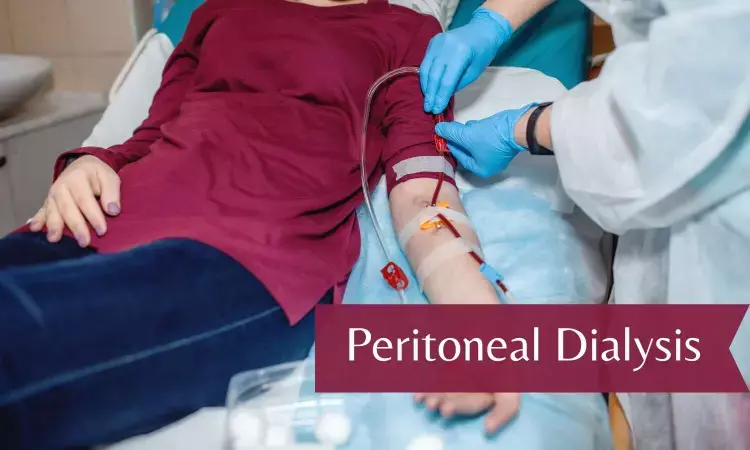- Home
- Medical news & Guidelines
- Anesthesiology
- Cardiology and CTVS
- Critical Care
- Dentistry
- Dermatology
- Diabetes and Endocrinology
- ENT
- Gastroenterology
- Medicine
- Nephrology
- Neurology
- Obstretics-Gynaecology
- Oncology
- Ophthalmology
- Orthopaedics
- Pediatrics-Neonatology
- Psychiatry
- Pulmonology
- Radiology
- Surgery
- Urology
- Laboratory Medicine
- Diet
- Nursing
- Paramedical
- Physiotherapy
- Health news
- Fact Check
- Bone Health Fact Check
- Brain Health Fact Check
- Cancer Related Fact Check
- Child Care Fact Check
- Dental and oral health fact check
- Diabetes and metabolic health fact check
- Diet and Nutrition Fact Check
- Eye and ENT Care Fact Check
- Fitness fact check
- Gut health fact check
- Heart health fact check
- Kidney health fact check
- Medical education fact check
- Men's health fact check
- Respiratory fact check
- Skin and hair care fact check
- Vaccine and Immunization fact check
- Women's health fact check
- AYUSH
- State News
- Andaman and Nicobar Islands
- Andhra Pradesh
- Arunachal Pradesh
- Assam
- Bihar
- Chandigarh
- Chattisgarh
- Dadra and Nagar Haveli
- Daman and Diu
- Delhi
- Goa
- Gujarat
- Haryana
- Himachal Pradesh
- Jammu & Kashmir
- Jharkhand
- Karnataka
- Kerala
- Ladakh
- Lakshadweep
- Madhya Pradesh
- Maharashtra
- Manipur
- Meghalaya
- Mizoram
- Nagaland
- Odisha
- Puducherry
- Punjab
- Rajasthan
- Sikkim
- Tamil Nadu
- Telangana
- Tripura
- Uttar Pradesh
- Uttrakhand
- West Bengal
- Medical Education
- Industry
What are risk factors for Vascular Calcification in Peritoneal Dialysis Patients?

China: Vascular calcification, a common complication in patients undergoing peritoneal dialysis (PD), has emerged as a significant determinant of long-term prognosis. A recent analysis published in BMC Nephrology has shed light on the multifaceted factors influencing vascular calcification in PD patients and their profound impact on overall health outcomes.
Comorbid diabetes, longer dialysis time, comorbid hypertension, and serum sclerostin (SOST) are risk factors for vascular calcification in peritoneal dialysis patients. Additionally, longer dialysis time, abdominal aortic calcification (AAC), and comorbid diabetes are associated with an increased risk of all-cause mortality in PD patients.
Peritoneal dialysis, a life-saving therapy for individuals with end-stage renal disease (ESRD), involves peritoneal membrane use as a natural filter to remove waste products and excess fluid from the body. While PD offers several advantages over hemodialysis, such as greater flexibility and preservation of residual renal function, it is not without its complications.
Vascular calcification, the abnormal calcium deposition in the blood vessels, is increasingly recognized as a prevalent complication in PD patients. This process, similar to the hardening of arteries seen in atherosclerosis, contributes to the development of cardiovascular disease and is associated with increased morbidity and mortality.
Against the above background, Zhongxin Li, Capital Medical University, Beijing, China, and colleagues aimed to investigate the influencing factors of vascular calcification in peritoneal dialysis patients and its relationship with long-term prognosis.
For this purpose, the researchers conducted a retrospective cohort study including chronic kidney disease (CKD) patients undergoing PD at the Peritoneal Dialysis Center of Beijing Luhu Hospital, Capital Medical University, from January 2019 to March 2019.
Clinical laboratory and demographic data, including serum sclerostin (SOST), phosphate (P), calcium (Ca), intact parathyroid hormone (iPTH), and serum albumin (ALB) levels, were collected. Abdominal aortic calcification (AAC) was evaluated using an abdominal lateral X-ray examination to determine vascular calcification occurrence, and based on the results, patients were divided into the AAC group and the Non-AAC group.
The study included a total of 91 patients. The AAC group comprised 46 patients, while the Non-AAC group consisted of 45 patients.
The researchers reported the following findings:
- The AAC group had significantly older patients than the non-AAC group and longer dialysis times.
- Multivariable logistic regression analysis indicated that risk factors for vascular calcification in PD patients included dialysis time, diabetes, hypertension, and SOST.
- Kaplan–Meier survival analysis showed that the AAC group had a significantly higher mortality rate than the non-AAC group (χ2 = 35.993).
- Multivariable Cox regression analysis revealed that dialysis time, diabetes, and AAC were risk factors for all-cause mortality in peritoneal dialysis patients.
The findings suggest that comorbid diabetes, longer dialysis duration, SOST, and comorbid hypertension are risk factors for vascular calcification in PD patients. The study showed that sclerostin is an independent risk factor for vascular calcification in PD patients.
"There is a need for further research to elucidate the specific mechanisms by which Sclerostin impacts vascular calcification and to evaluate the efficacy of interventions targeting Sclerostin in clinical practice," the researchers wrote.
Reference:
Cao, Q., Shi, Y., Liu, X. et al. Analysis of factors influencing vascular calcification in peritoneal dialysis patients and their impact on long-term prognosis. BMC Nephrol 25, 157 (2024). https://doi.org/10.1186/s12882-024-03582-2
Dr Kamal Kant Kohli-MBBS, DTCD- a chest specialist with more than 30 years of practice and a flair for writing clinical articles, Dr Kamal Kant Kohli joined Medical Dialogues as a Chief Editor of Medical News. Besides writing articles, as an editor, he proofreads and verifies all the medical content published on Medical Dialogues including those coming from journals, studies,medical conferences,guidelines etc. Email: drkohli@medicaldialogues.in. Contact no. 011-43720751


